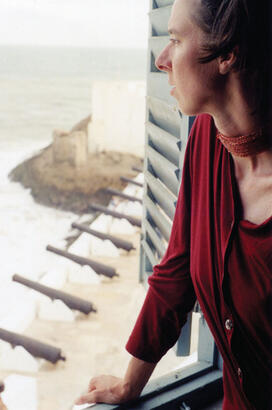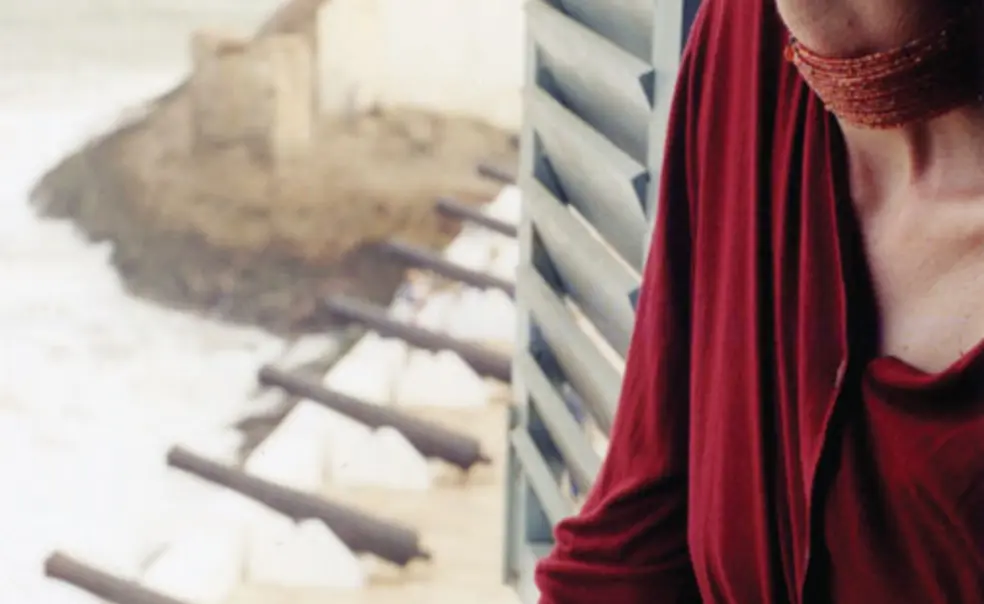
When Katrina Browne ’89’s grandmother gave her a short family history she had written in 1996, Browne faced an ugly truth: The DeWolfs of Bristol, R.I., had been the largest slave-trading family in U.S. history. That discovery led Browne to make the documentary film Traces of the Trade: A Story From the Deep North, in which she explores her family’s involvement in slavery, the role of the North in that practice, and its legacy today. The film premiered at the Sundance Film Festival in January 2008, aired on PBS last year, and is being screened this year across the country including at a Princeton Project ’55-sponsored event at Reunions, May 29, at 2 p.m. in the Frist Performance Theater. The film follows Browne and nine family members as they retrace the trade route — from Ghana to Cuba to New England. A co-founder of Public Allies, a Princeton Project ’55-type organization that places young adults, particularly people of color, in nonprofit organizations, Browne spoke with PAW in March.
Did you make the film because of guilt over being descended from slave traders?
No, not ultimately, though when I first found out I was overwhelmed with feelings of guilt. But I know that staying in that mode is not the most productive for working on issues that are still with us today. The more we understand the past and what happened and how we got to where we are today, the more likely we are to be able to figure out where to go next.
What do you hope the film inspires people to do?
I want white and black Americans to have more honest conversations where there could be a higher degree of listening and understanding, particularly on the part of white folks. I want to inspire white folks of all different backgrounds to ask: What is my connection to slavery? Even if my family came after slavery to this country, how am I connected to this? You don’t need to be ill-intentioned as a white person to be benefiting from systems that were set up a long time ago that are still working better for white folks, including just being ahead of the game of moving up the economic ladder.
What has been the film’s most significant impact in addressing the black-white divide?
We had a real influence on the vote that took place at the Episcopal Church’s general convention in 2006 on some resolutions for the church to atone for its role in slavery. My family showed the rough cut of the film at the convention, and we also testified as family members at the hearings on the legacy of slavery in the church. We’ve been told that those efforts helped push things over the edge so they could pass those resolutions, which created a three-year process for the church as whole, dioceses by diocese and parish by parish, to study the history and legacy of the Episcopal Church’s role in slavery. The film is being used to embark on these conversations and this process of reflection. [The first of three resolutions passed in 2006 called slavery a “sin” and recognized the Episcopal Church’s “history of participation in this sin.” The church held a national Service of Repentance in October 2008 to make a public apology. The resolutions will be up for debate and possible renewal at this summer’s convention.]
How do audience members respond to the film in discussions held after screenings?
People are generally in a very open-hearted place, and they say things they wouldn’t normally say in mixed settings. Despite the intensity of the subject, there’s often a sense of relief — that we’re finally being real with each other about it all. I think it’s natural to think these problems can be resolved rationally — for example, if there are inequities in schools, let’s roll up our sleeves and solve the problem — but I’ve come to realize through doing these screenings that there are a lot of emotions to peel through before you can get to the rational conversation. And it’s important to get into the messiness of it.
How has working on the film affected you?
It’s made me so much more conscious of racial disparities and racial dynamics and what it takes for me as a white person to get clued in, given the blinders I have. I am much more passionately committed to working on the black-white divide. I feel like a more grounded, well-adjusted person by virtue of being closer to a “right relationship” with African-Americans. It’s humbling work, and such a puzzle, but it’s good because it’s growing me constantly.
— Interview conducted and condensed by Katherine Federici Greenwood












No responses yet